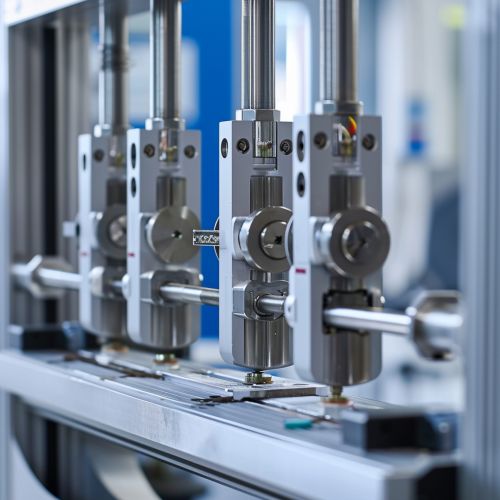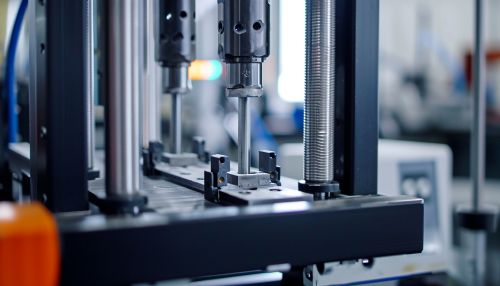Mechanical Testing
Introduction
Mechanical testing is a critical process in the field of materials science and engineering. It involves the application of various forces to a material or structure to understand its behavior under different conditions. This article delves into the various aspects of mechanical testing, including its types, applications, and significance.


Types of Mechanical Tests
There are several types of mechanical tests, each designed to measure specific properties of a material or structure.
Tensile Testing
Tensile testing is a fundamental mechanical test where a sample is subjected to a controlled tension until failure. The primary purpose of this test is to determine the tensile strength, yield strength, and ductility of the material.
Compression Testing
In compression testing, the test material is subjected to a compressive load. This test helps determine a material's ability to withstand compressive forces, which is particularly important in applications such as bridges and buildings.
Fatigue Testing
Fatigue testing involves subjecting a material to cyclic loading to understand how it behaves under repeated loading and unloading. This test is crucial in predicting the lifespan of materials subjected to cyclic stresses, such as aircraft wings or automobile components.
Impact Testing
Impact testing measures the energy absorbed by a material during fracture. This absorbed energy is a measure of a material's toughness.
Hardness Testing
Hardness testing measures the resistance of a material to deformation, particularly plastic deformation induced by indentation.
Applications of Mechanical Testing
Mechanical testing has a wide range of applications across various industries.
Aerospace Industry
In the aerospace industry, mechanical testing is used to ensure the safety and reliability of aircraft components. Materials used in aircraft must withstand extreme conditions, and mechanical tests help determine their suitability.
Automotive Industry
The automotive industry relies heavily on mechanical testing to ensure the safety and durability of vehicles. From the body of the car to the smallest components, every part undergoes rigorous mechanical testing.
Construction Industry
In the construction industry, mechanical testing is used to test the strength and durability of materials used in buildings and infrastructure.
Medical Industry
The medical industry uses mechanical testing to ensure the safety and effectiveness of medical devices. From surgical tools to implants, mechanical testing helps ensure these devices perform as intended.
Significance of Mechanical Testing
Mechanical testing plays a crucial role in ensuring the safety and reliability of products and structures. By understanding the mechanical properties of materials, engineers can design and manufacture products that can withstand the forces they will encounter during their service life.
